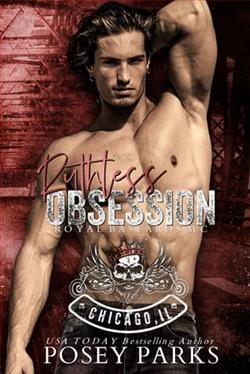Page 30 of High Season
M Allard:Pausing this interview at thirteen thirty seven.
END OF TRANSCRIPT.
ELEVEN
2024
The rain lifts. The sky clears. Josie walks out of the door of her childhood home before the sun is fully up.
The air out here feels familiar to Josie, as much a part of her as her skin and bones. Muggy with nighttime warmth, the smell of jasmine and mimosa sweet on the breeze. Carpenter bees humming over a patch of lavender at the end of the driveway, their violet wings almost black in the hazy light of dawn. Josie walks straight past them, purposeful, stretching a broken night’s sleep out of her body.
This is only the second time that Josie has been back in the last twenty years.
The first time was ten years ago, when she was first released from prison. She had to give an address, so she had named her childhood home, the only place that had rooted her to the outside world for all the years she was locked away. She stayed for just two nights, her mother hopeful, her hands knotted in front of her as she asked if Josie had slept alright, if she wanted anything. She had bought all the food Josie had loved most, back when she lived here last. Ritz crackers with orange globs of cheese, brightly colored cereal, plastic bottles of Capri-Sun. Things for another version of Josie, a person that she had long grown out of.
Josie had pretended not to notice when her mother’s shoulders had drooped in disappointment when she thought her daughter wasn’t looking, the piles of snacks left untouched.
Josie had left the next day. She had not returned.
Now, everything is exactly as she remembers it. The cluster of houses, all identical to the one she grew up in, crouched in a dip in the landscape, as if gathered for protection. The rolling upward tilt of the ground, the tree-lined road, wide enough for just one car. The baked earth. The walk that Josie used to do every day throughout the summer, as far back as she could remember, accompanying her mother to the house on the other side of the hill.
The route is longer than Josie remembers it, and soon her calves are aching, a seam of sweat where her clothes meet her skin. She had dressed quickly, in a pair of denim shorts and a T-shirt, the same heart-shaped necklace that she wears every day. Hauled a backpack onto her shoulders, which now weighs her down. She has to stop to catch her breath right before the hilt of the hill. Then, when the burning in her chest has faded, she walks the final few steps over the top. Over into what feels like another world.
The sky opens wide. Before her, a sharp decline straight down toward the sea, that brilliant azure that gives this place its name. Villas are nestled in the creases of the landscape, the artificial blue of swimming pools glinting against the red earth, like fat, shining beetles warming themselves in the sun. Farther down, the white strip of the beach, the pastel-painted town stuffed with designer boutiques and expensive restaurants that Josie’s mother could never afford to take them to.
Josie has imagined this view so many times that seeing it sends a sharp, awful pain through the center of her chest. She used to dream about it—not when she was locked up, when her dreams were messy and jagged, nothing in them feeling quite real—but after she was released. In London, where she had gone with the vague idea that she might track down her dad. Where she had stayed in a hostel south of the river, asked for a copy of the Yellow Pages and then tried calling every D. Jackson in the city.
Finally, a girl in her dorm room, incredulous that Josie didn’t havea smartphone, showed her how to use the free computers in the lobby. And there, over the sound of backpackers playing drinking games, travelers checking in for the night, Josie found the stories that her dad had sold to the papers after her arrest.
“I Always Knew She Was Evil,”Says Teen Murderer’s Dad
Dad Says Ex-Wife to Blame for Josie Jackson’s Murderous Streak
Josie Jackson’s Dad Speaks Out on His KILLER Daughter’s Release
Josie hadn’t wanted to find him so much, after that.
That was when the dreams started. There was also alcohol, and clubs. Sex, a thing that had felt so mystical and off-limits to her before, was suddenly readily available. There was an older boyfriend; a terrible breakup. A short prison stint, this time for theft, after a one-night stand reported Josie for slipping his wallet off the bedside table as she left. The kind of crime that might have warranted an eye roll from the police for anyone else. But the rules were different for Josie Jackson. The rules were different when everyone knew what you’d done.
She struggled to get jobs. Her name was too ubiquitous, and it was so easy to Google people now. She worked, briefly, in a nightclub that paid cash-in-hand. She started to lie, beginning to go by Josie Jones instead of Jackson. She considered making things official, changing her name legally, but she would have needed two witnesses to sign the documentation and she hadn’t been able to face telling her new friends or colleagues who she really was, knowing that word would spread quickly. She paid for everything in cash. She didn’t speak to anyone from her old life. It was easy to pretend. Shockingly easy to become someone else.
She fell hopelessly in love with a man who grew up in a small suburban town and worked as a joiner. They had moved to Devon together, and Josie got a job in a local tea room that didn’t ask for references. For a year or two, she felt that her life was finally coming together. That was, until her boyfriend had found her passport and seen her real name. She would never forget the way that he had looked at her.
“You killed someone,” he had said.
“You’re not listening to me,” Josie had protested. “You don’t understand.”
But she could see, on his face, that he was beyond listening. She knew that there was no return, once someone looked at you with that kind of undisguised disgust. There was no coming back from it.
England felt ruined for Josie after that. The streets were stained with her spoiled love, and she saw her ex on every corner, in the backs of strangers’ heads in the supermarket or in the reflections of passing cars.
She tried Paris, and a series of cash-in-hand jobs. Cleaning. Delivering pizza. Working the coat check at an expensive restaurant. She used to listen to people from her small, dark enclosure as she collected and carefully tagged their jackets. She heard them talk about their nights; their real, tax-paying jobs; the bars that they would go to next. Sometimes, they mentioned the places that Josie had once dreamed she’d visit: Rome, New York, Vienna.
She lived in a small, damp flat with three other girls who seemed as lost as she was. On the nights when they had spare cash—which was rare—they would band together for drinks, a cheap bottle of wine consumed on the sunken living room sofa, a night out at a club that would leave smudged stamps on their arms. Josie would close her eyes and reach her arms up to the throbbing lights, dance so hard that the others would tease her about it. She would try and imagine that she was young, and carefree, just like thousands of other people who had come to the city before her. That her life was ahead of her. That her world hadn’t, in many ways, ended almost two decades ago.
But then a French newspaper ran a double-page spread on JOSIEJACKSON:FRANCE’SMOSTNOTORIOUSKILLER.WHEREISSHENOW?accompanied by grainy, unflattering photographs of Josie. Sitting on the doorstep of her flat after one of their nights out, her eyes looking sunken, her hair greasy. Emerging from a cleaning job, a mop and bucket in hand. Waiting for a bus, almost but not quite looking at the camera, her pupils glazed, her mouth downturned.
Of course, Josie knew that nobody looks good with a hangover, or on the way home from a long and exhausting shift. Josie knew that, with the right camera angle, her hair freshly washed, a slick of mascara, she looked fine. Pretty, even, if she put a bit of effort in. Yet inthese photos, there was a darkness. In these photos she looked, Josie knew, like someone who could kill.















